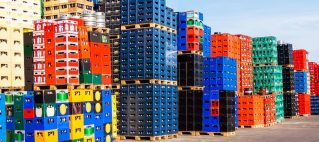Vancouver, known globally for its stunning landscapes, is equally renowned for its commitment to sustainability. As urbanization progresses, waste management has emerged as a crucial pillar of this commitment, ensuring the city remains green in practice, not just in name.
The Genesis of Vancouver’s Green Vision
Historically, Vancouver has always had a close relationship with nature. But over the past few decades, the city has embarked on a strategic journey to evolve into a globally recognized green city. The Greenest City 2020 Action Plan set in 2011 was one such significant milestone, setting ambitious targets in various environmental domains.
Waste Management: A Pillar of Sustainability
Waste management isn’t just about keeping streets clean; it plays an intrinsic role in the broader sustainability picture. Proper disposal reduces land and water pollution, minimizes greenhouse gas emissions, and can even create economic opportunities. For cities aiming for a sustainable tag, mastering the art and science of waste management is non-negotiable.
ALSO READ: Bottle Depots: How to Reduce Your Impact on the Environment by Recycling
Vancouver’s Current Disposal Practices
Vancouver has adopted a multi-faceted approach to waste:
- Residential Waste: Regular pickups, with separate collections for recyclables, organics, and garbage. The city promotes home composting and has a detailed sorting guide for residents.
- Commercial and Industrial Waste: Businesses and industries have distinct guidelines, with the city encouraging waste reduction at source and responsible disposal of hazardous waste.
- Technological Innovations: From apps to guide waste sorting to machines that optimize recycling processes, Vancouver is harnessing technology to keep its streets and environment clean.
Success Stories: When Disposal Meets Innovation
Vancouver’s journey has seen multiple successes:
- The Zero Waste Centre: This facility allows residents to drop off various items, ensuring they’re either recycled, reused, or responsibly disposed of.
- Community-led Initiatives: Areas like Mount Pleasant have seen community-driven composting and recycling programs that serve as models for other neighborhoods.
- Public-Private Collaborations: Partnerships with companies to pilot innovative recycling methods have borne fruit, turning potential waste into resources.
Areas of Improvement: The Road Ahead
While successes abound, there’s still a road to tread. Some challenges include:
- Waste Reduction: Despite advances in disposal, reducing waste at the source remains a challenge.
- E-Waste: Electronic waste, though recyclable, often ends up in landfills, necessitating better collection and processing systems.
- Public Awareness: Continuous education is vital, especially as waste streams and disposal methods evolve.
Conclusion
Vancouver’s journey towards becoming a paragon of green urban living is ongoing. While the city’s efforts in waste management are commendable, the journey is collective. Each resident has a role to play, ensuring Vancouver remains not just a city in nature but a city of nature.



